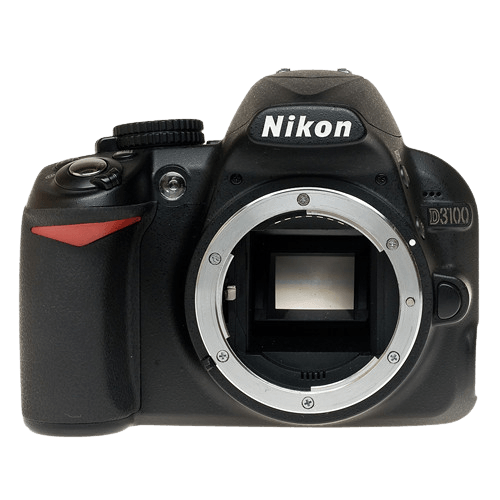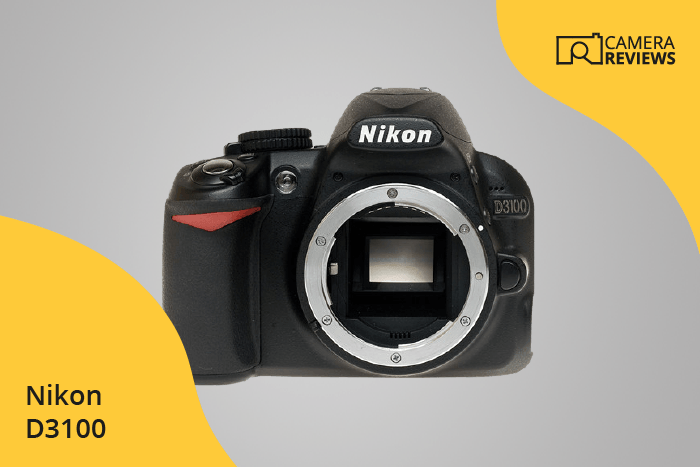Nikon D3100 Specs and Scores

The Nikon D3100 receives a score of 41/100. Launched in October 2010, this DSLR camera initially sold for $699. Measuring 124 x 96 x 75mm and weighing 505g or 1.11lbs, the D3100 is a compact and lightweight option. However, considering the advancements in camera technology since its release, the D3100 may not be the most competitive choice in today’s market. Despite this, it remains a viable option for beginners or those looking for an affordable DSLR camera.
Nikon D3100 Overview and Optics
The Nikon D3100’s optics receive a score of 41 out of 100. With 14.8 megapixels, a shooting speed of 3 frames per second, and a CMOS sensor, the camera provides decent image quality. The Expeed 2 processor and DXOMARK sensor score of 67 contribute to its overall performance. However, the APS-C sensor size and Nikon F DX lens mount are standard features found in similar cameras on the market.
The absence of image stabilization may result in less sharp images when shooting handheld, and the 3:2 aspect ratio is a common format for most DSLRs. Comparing these specifications to other cameras available today, the Nikon D3100 falls short of providing cutting-edge technology or exceptional performance in the optics department.
The Nikon D3100 is a reliable option for beginner photographers, but those seeking advanced features and superior optics may want to explore other cameras in the market.
Nikon D3100 Video Performance
The Nikon D3100 lacks video capabilities. This camera is good for still photography only.
Nikon D3100 Features and Benefits
The Nikon D3100’s features score is 36/100. The camera possesses a 3-inch screen with a resolution of 230,000 dots. However, it lacks modern features such as a touchscreen, flip screen, GPS, WiFi, and Bluetooth.
In comparison to today’s market, the D3100’s specifications are outdated. Many current cameras offer touchscreens and flip screens, enhancing user experience and flexibility. Additionally, the absence of GPS, WiFi, and Bluetooth limits the camera’s connectivity options, making it less convenient for sharing and transferring photos.
The Nikon D3100 is a reliable camera but falls short in terms of features when compared to contemporary models. Its lack of modern amenities may deter potential buyers searching for a more advanced and user-friendly camera.
Nikon D3100 Storage and Battery
The Nikon D3100 receives a storage and battery score of 53/100. This camera has a single memory card slot, compatible with SD, SDHC, and SDXC cards. In the current market, multiple memory card slots are preferred for flexibility and increased storage capacity. However, the single slot may suffice for casual photographers.
The battery life offers an impressive 4500 shots per charge, utilizing the EN-EL14 battery type. This surpasses many competitors, providing extended shooting time for users. Unfortunately, the camera lacks USB charging capabilities, which limits convenience compared to modern cameras with this feature.
Considering these specifications, the Nikon D3100 has a decent storage and battery performance, yet falls short in some aspects when compared to current market standards.
Nikon D3100 Alternatives
Do you want to know how the Nikon D3100 compares to its competitors? Have a look at the most popular comparisons for this camera below:
- Canon EOS Rebel T3 / 1100D vs Nikon D3100
- Nikon D3100 vs D7500
- Canon EOS Rebel T100 / 4000D vs Nikon D3100
- Nikon D3100 vs D5600
- Nikon D3100 vs D80
- Nikon D3100 vs Z6 II
- Nikon D3100 vs D3300
- Nikon D3100 vs D3500
- Nikon D3100 vs D600
- Nikon D3100 vs D3400
Nikon D3100 FAQ
Does the Nikon D3100 Have Built-in Image Stabilization?
The Nikon D3100 does not have built-in image stabilization. However, it supports Nikon lenses with VR (Vibration Reduction) technology, which helps to minimize camera shake.
Does the Nikon D3100 Support 4K Video Recording?
The Nikon D3100 does have video functionality, but it does not support 4K video recording. It can record Full HD 1080p videos at 24 frames per second.
What Size Sensor Does The Nikon D3100 Have?
The Nikon D3100 features an APS-C sized sensor, which is a 23.1 x 15.4 mm DX-format CMOS sensor with 14.2 effective megapixels.
Does the Nikon D3100 Have a Dual Memory Card Slot?
The Nikon D3100 has a single SD/SDHC/SDXC memory card slot and does not support dual memory cards.
Does the Nikon D3100 Have a Touch Screen?
The Nikon D3100 does not have a touch screen. It features a 3-inch fixed LCD screen with a 230k-dot resolution.
Does the Nikon D3100 Have Wi-Fi and Bluetooth?
The Nikon D3100 does not have built-in Wi-Fi or Bluetooth connectivity. However, you can use an optional wireless mobile adapter for remote shooting and image transfer.
Does the Nikon D3100 Have GPS?
The Nikon D3100 does not have built-in GPS functionality. You can use an optional GPS unit to geotag your images.
Is the Nikon D3100 Weather Sealed?
The Nikon D3100 is not weather sealed, so it is not recommended to use it in harsh weather conditions without proper protection.
Does the Nikon D3100 Have a Built-in Flash?
Yes, the Nikon D3100 has a built-in pop-up flash, which is useful for low-light situations and as a fill light when needed.

